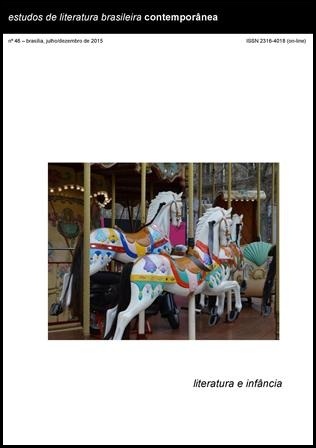O narrador e a paisagem:
Milton Hatoum, Bernardo Carvalho e o fim do projeto de uma literatura nacional
DOI:
https://doi.org/10.1590/2316-40184618Abstract
Discute-se, a partir da observação de mudanças na construção do narrador e na representação da paisagem natural e social, o fim do projeto de literatura nacional no romance brasileiro. Para caracterizar as condições anteriores, parte-se da proposição de Echevarría segundo a qual o romance latino-americano já século XIX adotara a paisagem como símbolo identitário, sob a mediação interpretativa de discursos não ficcionais investidos de autoridade. Em seguida, apresenta-se a caracterização de Süssekind das figurações do narrador que consolidaram a paisagem em tal função no Brasil até o século XX. Em contraste, em Hatoum e Carvalho a multiplicação de vozes, a fragmentação das verdades e a auto-observação do narrador bloqueiam a mobilização da paisagem para a função identitária, num desvio dos pressupostos fundadores da literatura nacional que a inviabilizaria como projeto, o que implica uma transição histórica importante do romance brasileiro.
Downloads
Published
Issue
Section
License
Authors who publish in this journal agree to the following terms:
a) The authors maintain the copyright and grant the journal the right of first publication, the work being simultaneously licensed under the Creative Commons Attribution License-Non Commercial 4.0 which allows the sharing of the work with acknowledgment of the authorship of the work and publication this journal.
b) Authors are authorized to enter into additional contracts separately, for non-exclusive distribution of the version of the work published in this journal (eg publish in institutional repository or as a book chapter), with authorship recognition and publication in this journal.
c) Authors are allowed and encouraged to publish and distribute their work online (eg in institutional repositories or on their personal page) after the editorial process, as this can generate productive changes, as well as increase the impact and citation of published work (See The Effect of Free Access).
d) The authors of the approved works authorize the magazine to, after publication, transfer its content for reproduction in content crawlers, virtual libraries and the like.
e) The authors assume that the texts submitted to the publication are of their original creation, being fully responsible for their content in the event of possible opposition by third parties.


